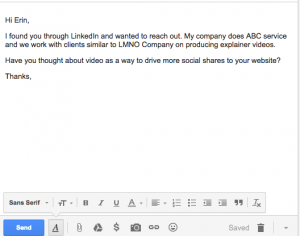In many marketers’ minds, ‘search engine’ is synonymous with Google. And in many ways, that makes perfect sense: the search engine giant continues to dominate its industry, with a 60%+ market share that goes over 80% when taking into account only mobile searches.
But of course, that market share also reveals one hidden truth. While Google rightfully dominates any SEO discussion, 33% of consumers use alternative search engines. Thinking beyond Google will become imperative for success in 2016 and beyond, as alternatives continue to push the incumbent market leader for their piece of the pie.
Bing Continues to Grow
First, it would be foolish not to begin this discussion with Google largest competitor, Bing. Microsoft’s Google alternative first reached a respectable 20% market share among search engines this year, which (perhaps not coincidentally) aligned with a 3% drop in Google’s dominance from 67% in 2014 to 64%.
Bing continues to slowly gain ground on Google by counteracting the latter’s simplistic design with a visually rich experience. It also incorporates a “trending” bar across the bottom that moves to the top once a user keys in a query, an acknowledgement to millennials’ needs for quick news and updates that will look especially similar to Facebook and Twitter’s ‘Trending’ feature. But the search engine goes even further in its quest for market share, offering rewards such as gift cards for every search on its page.
The old adage that “number 2 works harder,” made famous by the 1960s AVIS advertising campaign, seems to ring true here. While Google won’t soon relinquish its place atop the search engine Olympus, Bing’s continued efforts will continue to ensure steady market share growth over the next few years – and with it, an increased necessity for digital marketers to pay attention to its SEO implications and algorithms.
Apple Enters the SEO Field
Increasingly though, ‘traditional’ search engines like Google and Bing no longer just compete with each other. That much was made clear just last month, when Apple released its new and improved search feature in the mobile operating system iOS 9.
Apple and Google have battled for years to steal users from each other, with no more notorious battlefield than the Maps showdown that began two years ago and is nowhere near a conclusion. Now, it appears that search is the next frontier between the two tech giants, as the new search feature in iOS 9 allows users to search for content even in apps that they haven’t yet installed.
This new feature may not seem like a direct competitor to Google or Bing, considering that it’s designed to search apps instead of websites. But from a user perspective, we’re not sure the difference matters all that much: users want information above all, and they don’t care whether they find that information on a website or in an app. In this “information search” environment, Google and Apple may as well be direct competitors.
Facebook May Soon Follow
And Apple isn’t the only tech giant looking to infringe on Google’s space in the search market. Facebook is reportedly working on tests for its own search engine, which would allow its users to surf the web without ever leaving the app. In this plan, the network would take advantage of the millions and billions of status updates shared every day to create its own index – one that, according to reports, is already over 1 trillion posts deep.
The result of Facebook’s experiment would look nothing like the relatively linear search process of Google, Bing or even Apple. Instead, it would create an “add a link” button to the network’s post-creation system, at which point users could search the web for an article of their choosing without leaving the app or visiting a search engine.
This holistic experience would certainly benefit the social network, which would no longer see users bounce from its page or app simply to find an article. But it also creates yet another search variant for marketers like you to be aware of as you plan your SEO strategy.
How to Succeed at SEO Beyond Google
At this point, we wouldn’t blame you if your head is spinning at least a bit. Even experienced SEO experts often rely on Google’s SEO and webmaster rules to ensure their sites are both compliant and well-designed to rank highly on the market leader’s platform. How in the world are you supposed to come up with a strategy that keeps the requirements of alternatives like Bing, Apple and Facebook in mind, while still designing a beautiful, user-friendly and well-written site for your potential customers?
The answer is surprisingly simple: by de-emphasizing the technical requirements.
Don’t misunderstand us: you should still stay away from any type of black hat SEO techniques, which will probably get you punished anywhere. It also makes sense to create a mobile-friendly website, not just because of Google’s “Mobilegeddon” but because increasing numbers of your potential customers are flocking to mobile devices. But instead of getting hung up on technical details like keyword density or the amount of backlinks to your page, we suggest focusing on one, overarching point: great content.
Google, Bing, Apple, Facebook, and any potential competitor that may enter the search engine market will differ in their exact measure of which pages are more relevant than others. Bing, for example, emphasizes social media sharing much more than Google does, while simultaneously almost entirely disregarding backlinks, Google’s major credibility indicator. But they all strive above all for one goal: to show their users the most relevant content possible in order to increase user satisfaction and ultimately their market share.
For you as a marketer, that means creating this relevant and interesting content should be your single highest priority. Just like that, search engine optimization is turning from a science back into an art – and marketers who are aware of this shift and adjust early will be better off in the long run.
Digital & Social Articles on Business 2 Community(111)
Report Post






